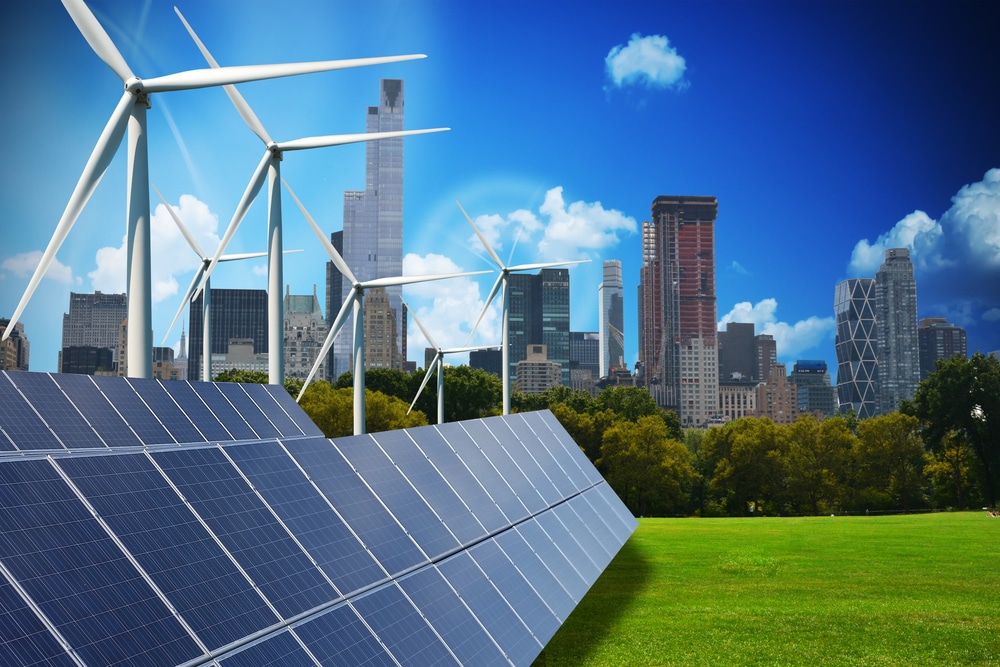The verdict is unanimous; gas is out and renewables are in.
According to new data from the Climate Council, renewables including wind and rooftop solar outpaced gas more than five to one in the National Electricity Market (NEM) last year, underscoring renewables’ growing importance as a low-cost and clean energy source.

Climate Council data revealed the unprecedented pace that renewable energy is entering the grid, up 20 per cent in the NEM in 2021. Victoria saw a 30 per cent jump, followed by a 26 per cent jump in Western Australia. Gas generation, in contrast, fell to its lowest level in more than 15 years despite no change in electricity demand. In South Australia, gas generation slumped to its lowest level in more than two decades, while in Victoria it dropped a staggering 30 per cent in just 12 months.
Gas simply cannot compete with renewable energy, which is great news for consumers and the environment alike; renewables provide cheaper, cleaner energy that’s better for our health and climate.
Tim Baxter, Senior Researcher for the Climate Council, said that the record drop in electricity prices is a direct result of the increasing uptake of renewables.
“Electricity is now the cheapest it has been in almost a decade and we have solar and wind to thank for that,” said Baxter.

Gas investment makes “zero commercial sense”
The Climate Council’s announcement comes in the wake of baffling news from the Morrison Government that it approved the NSW Kurri Kurri gas-fired power station despite gas providing only 1.5 percent of the state’s power.
Baxter didn’t hold back on the issue, declaring that the investment makes “zero commercial sense.”
“When you look at the data and what renewables are doing for Australians’ hip-pockets, the push for gas from the Morrison Government seems increasingly irresponsible and economically reckless”.
Climate Councillor, energy expert and former BP Australasia President, Greg Bourne agreed;
“Every taxpayer dollar spent on new gas-fired power infrastructure is at risk of being wasted on unnecessary stranded assets.”
“Why is the Morrison Government investing in gas-fired power stations when the need for gas in our electricity system is clearly disappearing?” said Mr Bourne.
“Gas is expensive, polluting, and diminishing in importance and relevance as the rest of the world moves towards net zero, and our own states and territories rapidly roll-out large-scale renewable energy and storage.”
The writing is on the wall – it’s time to phase out gas for good.
Top 3 Reasons to Ditch Gas and Go All-Electric at Home
Have you made the switch to solar power?
Rooftop solar has taken the country by storm in recent years. As of 9 November 2021, more than 3 million rooftop solar PV systems have been installed across Australia.
You may be wondering if solar is still worth it in 2022 – after all, feed-in tariffs are low and rebates aren’t as generous as they once were. The answer is a resounding yes. Solar is still worth the investment for the overwhelming majority of Australians.
With a payback period of 2-5 years on the upfront cost, homeowners will not only enjoy significant savings on their energy bills over the lifespan (25-30 years) of their system but also increase the value of their home while reducing their carbon footprint.
The key to a good investment is to find a reliable solar installer who offers high-quality solar panels, excellent service and great aftermarket support.
If you’re looking to make the switch, we can help. We only partner with solar providers that we trust to deliver quality products and services, so you can be sure that you’ll be looked after for the long haul.
Take our quick solar quiz for up to 3 obligation-free solar quotes from trusted local installers. It’s fast, it’s free and you’ll be well on your way to reaping the benefits of a great investment now and for many years to come.













































